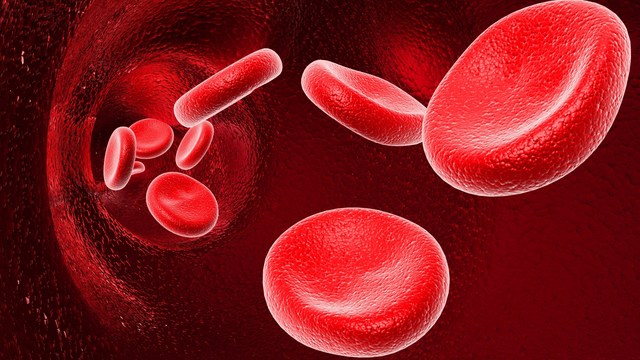The Story Began: Preemies, Prevention and Progesterone (17P): My First Preemie
The Story Continued: Preemies, Prevention and Progesterone (17P): My Second Pregnancy
A relatively new treatment women may choose to help prevent recurring spontaneous preterm labor and delivery is to receive weekly injections of a type of progesterone, even if these levels are within normal ranges during pregnancy. This progesterone injection is referred to as “17P” (17 Alpha-Hydroxyprogesterone Caproate), a type of progestin, similar to our naturally occurring progesterone, and has been shown in studies to significantly reduce the chances of recurrent spontaneous preterm labor.
A little background about natural progesterone, as it is known as the “hormone of pregnancy”, because it helps the uterus maintain the pregnancy. Progesterone works in a many ways, including:
- causes the uterine lining to thicken for implantation of the fertilized egg
- prevents uterine contractions
The 17P injections have been shown effective and safe in clinical studies. Overall, similar results have been found in numerous studies: women who have received treatment with 17P significantly reduced the risk of delivery at less than 37 weeks gestation. (Sources below).
A full-term pregnancy is defined as delivering after the 37th week, and most women's EDD (estimated due date) is during her 40th week.
The studies I consulted found that 17P not only lowered the overall risk of delivery before 37 weeks gestation, it significantly reduced the risk of preterm delivery at other gestational ages as well. In fact, one study found women with first deliveries at 20-27 week gestation, as well as first deliveries at between 28-33.9 week gestation, delivered at more advanced gestational ages if treated with 17P than compared with the placebo group. (Sources below)
The “28-33.9 week group" is “my group”, as I delivered my first son at 33 weeks gestation with a spontaneous "premature rupture of membranes" (PROM), so I was particularly interested in these results. Another study found similar results with 17P treatment regarding specific increase of gestational age at delivery, and also found that the infants of women treated with 17P had “significantly lower rates” of certain health conditions, as well as lower rates for the “need for supplemental oxygen”. (Likely due to the infants' advanced gestational age at birth).
According to the March of Dimes, 13 percent of all babies in the U.S. are born prematurely (before 37 weeks gestation). If this is true, and 17P has been proven to reduce this risk, why is it not being given to every pregnant woman in the U.S.? While the FDA has approved 17P as safe and effective for certain treatments, it is not (yet?!) approved for administration for prevention of preterm delivery in pregnancy.
In fact, during my first injection with a home nurse, I was required to sign multiple “patient consent” forms, one of which stated that I understand this exact fact: “FDA has approved 17P as safe and effective for certain treatments, but it is not approved for administration for prevention of preterm delivery in pregnancy”. The reason: “the optimal dosage and frequency of 17P for this specific purpose has not been established”; “the risks are unknown”. If you have ever been pregnant, you know how difficult it is to consistently make good choices about what you are putting into your body, so that you can create the best environment for your growing baby. After reading that this treatment is not FDA approved for this specific purpose in pregnancy, I did hesitate, but after speaking with my trusted doctor, reading the studies and knowing my specific background and history, I felt comfortable that the potential benefits of 17P outweighed the possible risks for me and my baby.
As one study states, “Preterm birth occurs in 1 of 8 pregnancies, and may result in significant morbidity and mortality. 17P has been found to be efficacious in reducing the risk of subsequent preterm delivery in women who have had a previous spontaneous preterm birth.” Honestly, this was music to my ears.
After signing the paperwork, I was nervous with my decision, not because of any safety reasons, but I am highly afraid of needles! The 17P injections are a series of weekly injections, typically started in a woman's second trimester, somewhere between weeks 16-20, given on a weekly basis until full-term gestation is reached through the 36th week. This equals roughly about 20 shots. In your hip/backside. When you are hugely pregnant. Ouch.
I did get over my fear of needles, and feel it is important for all women in this situation to learn all they can about 17P, as well as talk with their doctor about concerns and prevention options for a potential recurring preterm birth. If 17P is not the right solution for you, it is great for women to have more options to provide the best chances for their baby to be born at a later gestational age.
References:
Spong, CY, et al. (2005). Progesterone for prevention of recurrent preterm birth: Impact of gestation age at previous delivery. American Journal of Obstetrics and Gynecology. 193:1127-1131. [Accessed at: PubMed.gov].
Meis, PJ., et al. (2003). Prevention of Recurrent Preterm Delivery by 17 Alpha-Hydroxyprogesterone Caproate. NEJM: Number 24, 348: 2379-2385. [Accessed at: http://content.nejm.org].
Concluding article in series: Preemies, Prevention and Progesterone (17P): The Story Concludes....Were the Injections Worth It?.





Add a CommentComments
There are no comments yet. Be the first one and get the conversation started!